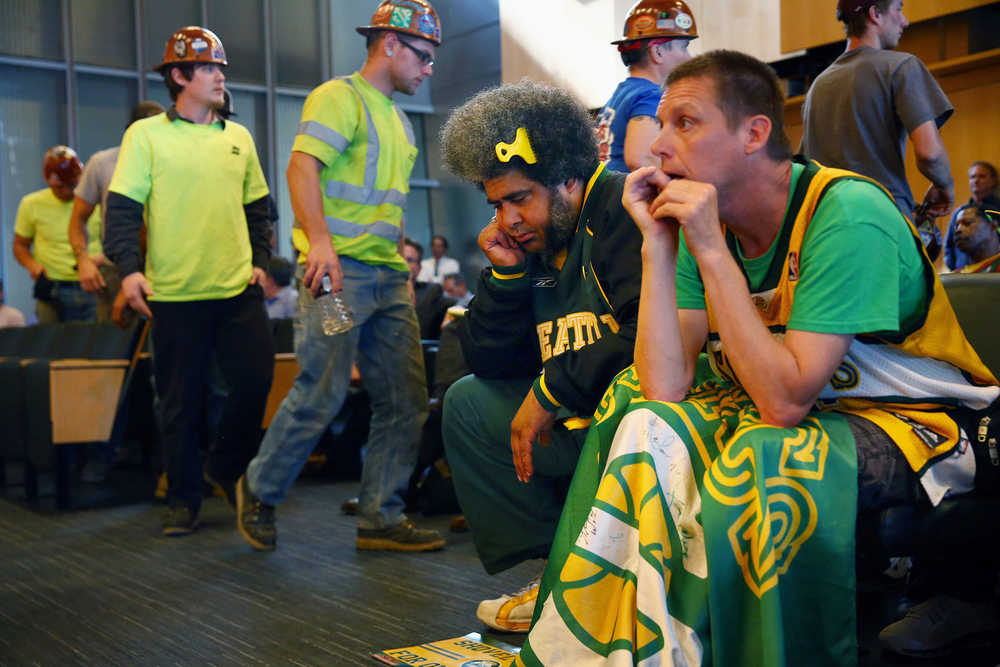SEATTLE — The quest to bring the NBA back to Seattle took a significant step Tuesday with investor Chris Hansen and his investment group offering to pay for a proposed arena with private funds.
In a letter to Seattle Mayor Ed Murray, the City Council and King County Executive Dow Constantine, Hansen’s group is now offering to rip up a memorandum of understanding from 2012 that called for up to $200 million in public investment in the arena.
“We just concluded the landscape has changed,” said Wally Walker, part of Hansen’s investment group. “We can’t be ignorant of where we are four years in. If we think we can do this, then we should. Our priority is to get the arena because we think the NBA and NHL will come after that.”
Hansen’s group is now offering to pay for the project privately. Additionally, the group is offering to contribute to a transportation project near the proposed arena that would help deal with freight traffic at the Port of Seattle, a sticking point in past efforts, in exchange for a waiver of the city’s admissions tax and an adjustment of the city’s business and occupation tax.
“We have concluded that a changed economic climate makes possible the private financing of the arena,” the letter reads. “For that reason, and to address concerns expressed by city council members, we would consider revising the street vacation petition to eliminate public financing of the arena. In such a case the MOU would be terminated and the rights and obligations of the parties under the MOU would end.”
The decision comes 5½ months after the city of Seattle turned down Hansen’s request to block off a street needed for construction of the arena, which could have led to the issuance of a master use permit, meaning construction of the arena could have started once an NBA team had been acquired.
“Once we got through to the other side of the street vacation vote going unexpectedly, I think we stepped back rationally to look at what we could do to be put in a position so one, it could be passed, and two, meet the needs of the constituencies,” Walker said. “We won’t meet all needs, but this is a great deal for the community. The previous MOU was as well, but this was better. We’re not over the hump yet because there are still politics involved, but we’re proud of taking this step. We did a fair amount of financial analysis, too, to make sure it would work and be a viable building for the community.”
The termination of the MOU provides Hansen’s group with flexibility — should the city agree to its requests, which still include blocking off the street. Hansen already owns the land for the arena and could proceed with construction even without a team. It also opens up the NHL as an immediate possibility as the MOU was tied to the acquisition of an NBA team as a condition of construction.
Walker said the NBA was made aware of the decision to privately finance the project and of Tuesday’s announcement.
“We just wanted them to know what we were doing and they needed to be informed. And the NHL will be monitoring closely too, I’m sure,” he said.
Should the arena plans progress, it can also be viewed as a win for politicians for pushing Hansen’s group to make the project privately funded.
“Chris Hansen today demonstrated his continued commitment to building an arena and to take advantage of an improving economy,” Constantine said in a statement.
“His efforts will strengthen our ability to compete for an NBA team.”
As of now, Hansen’s group — which includes members of the Nordstrom family and Walker, a former Seattle SuperSonics president and minority owner — has not taken on additional investors. The original proposal in 2012 said the total project would cost $490 million. Walker said the cost of the arena has likely gone up slightly from the initial projections.

